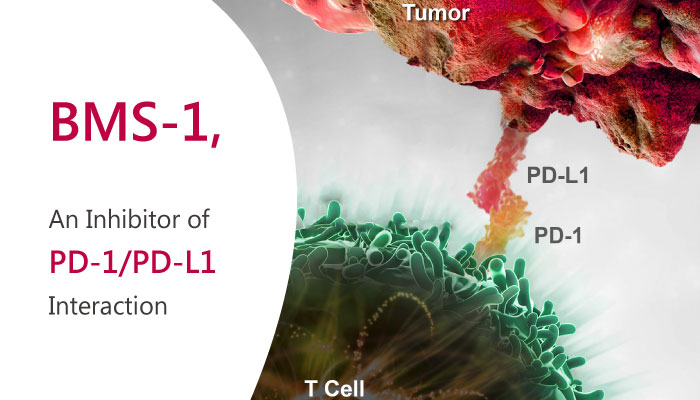
Programmed death protein 1 (PD-1) is a major immunological checkpoint that belongs to the CD28 family. Importantly, it has an essential role in balancing protective immunity and immunopathology, homeostasis and tolerance. However, during responses to chronic pathogens and tumors, PD-1 expression can limit protective immunity. The blockage of PD-1 or PD-L1 has become a novel strategy in many types of cancer. BMS-1 (PD-1/PD-L1 inhibitor 1) is a inhibitor of the PD-1/PD-L1 interaction that could be useful as an immunomodulator.
The driving molecular events behind the depression in liver cancer are still unclear. However, Zhao Y, et al, demonstrated that depression promoted the tumor growth of liver cancer. The glucocorticoids (GCs) function as a mediator that links depression and the antitumor reaction via NK cells. In vitro studies confirmed that Dexamethasone significantly increased the expression of PD-1 and decreased the cytotoxicity of NK92 cells in a PD-L1-dependent way only in the co-culture system with the presents of HepG2 cells but not in the independent culture of NK92 cells. To conclude, they found that PD-1/PD-L1 mediated exhaustion of infiltrated NK cells promotes hepatocellular carcinoma progression under depression. This provided a novel strategy for glucocorticoids (GCs) GC-mediated anti-depressant therapy in liver cancer patients.
Since PD-1 mediated the exhaustion of NK cell by binding to its ligand PD-L1, they used BMS-1 to disturb the interaction between PD-1 and PD-L1. BMS-1 at a final concentration of 1 μM was added in co-cultures of NK cells and HepG2 cells. As expected, BMS-1 treatment reverses the Dexamethasone induced increase of PD-1 expression and decrease of cytotoxicity of the co-cultured NK92 cells. In this research, Zhao Y, et al, have proved the potent efficacy of BMS-1 in inhibiting the PD-1/PD-L1 interaction.
Reference:
Carcinogenesis. 2019 Feb 4.